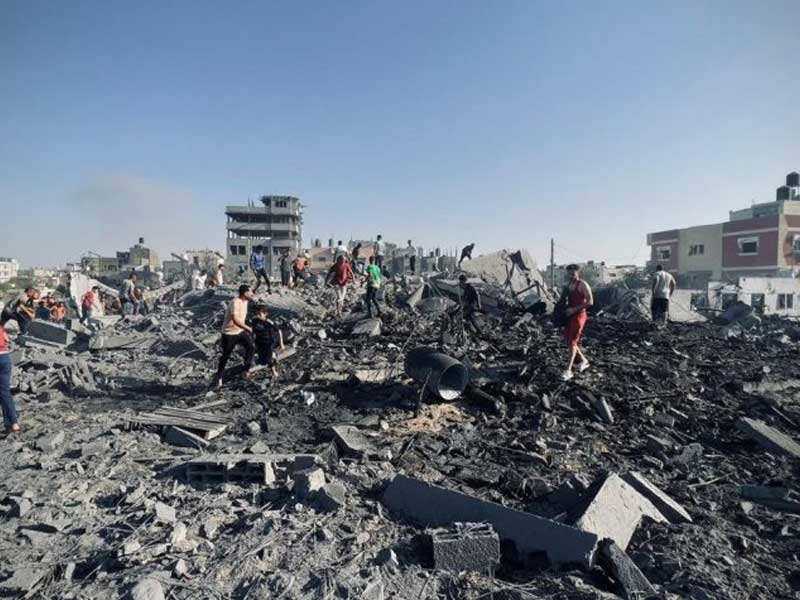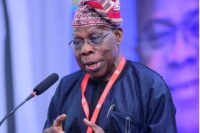Leaders must contain wars, not fuel them, argues
RAJENDRA ANEJA
The conscience of mankind is dying. There are dangerous wars in many parts of this world. They could have been avoided by leaders exercising sensible restraint. There is a new, dangerous machismo among some global leaders.
The war in Ukraine has been going on for over three years. About a thousand soldiers plus civilians are dying every day in this bloody war. The Western countries are zealously supporting Ukraine against Russia, even though Russia has the upper hand in the battles. President Trump had promised to end this battle, during his election campaign. It has not happened. Now, President Putin has offered to mediate in the Israel-Iran imbroglio. Yet, he has not secured peace in his own backyard with Ukraine. Gloomy, but true.
President Trump should be tenacious in his efforts to broker a peace between Ukraine and Russia; however recalcitrant Russia may be and however tough it may be.
Perhaps, President Trump should spend two days alone, in a neutral country with each leader, without the press or any advisers. He should talk to each leader alone, at length and understand his heart and mind. He can then review how to make them talk to each other respectfully. Then, he can sit with both for a few days again, without the media and assorted advisers, to bring them to an agreement.
Israel continues to bomb the Gaza strip, in the hope of decimating Hamas. Again, this has not happened, even after a year of bitter fighting. Hamas refuses to return the hostages. So, Israel continues to bomb. Hamas should release the remaining Israeli hostages as a sign of good faith. It will create an atmosphere of mutual trust and kindle a peaceful settlement.
In Gaza, the refugees, women and children get killed waiting for bread or water. Their plight is heartrending. They are unable to access water, food and medicines. What have we come to in our world, that we even bomb helpless refugees waiting for some food?
The area of land which Palestinians occupy has been shrinking in the current battle. Their children have been missing school for years now. Generations of children are losing the opportunity to build better lives. Friendly countries of both the warring parties should lead efforts to restore normalcy in Gaza. The people of Gaza also have the right to lead peaceful family lives.
The new Israel-Iran war is bitter and very perilous. It could destabilise the entire Middle East. Talks were ongoing with Iran, to contain its nuclear program. Israel should have been a bit more patient. Instead, these two nations got locked in a gory battle, with innocent citizens being killed and the infrastructure being pulverised.
The Iraq war of 2003 was horrendous. Then, it turned out, that there were no weapons of mass destruction in the country. Trust there is solid evidence on Iran’s nuclear capabilities. Nevertheless, there is no justification for a war and the death of innocents.
Prime Minister Netanyahu had sought regime change and President Trump demanded unconditional surrender. Iran is a sovereign country. How can it accept such ignominy? It will fight, as a matter of self-respect. Hopefully, the new ceasefire will hold.
The world should understand the insecurities of Iran and address them. Iran will not cease its nuclear programme through threats and bombings. The community of nations must embrace the country. And then convinced. The ostracisation and isolation of Iran is counterproductive. Boycott will not work, bonding may.
India and Pakistan have sensibly holstered their guns. However, there is an open fight to garner credit for delivering a ceasefire. India claims that the ceasefire was the result of a peace request from Pakistan. President Trump claims that he counselled the leaders of India and Pakistan to secure the ceasefire. The Pakistan military chief has urged that President Trump should be recognised with the Noble Prize for Peace for his efforts. Mr. Modi denies Mr. Trump’s role in peacemaking. Here we have a situation where important leaders are claiming credit for having ended a battle. The fact is, that India and Pakistan drew a line on their skirmishes, because any escalation would have meant a serious battle engulfing both countries.
There is another ethnic battle raging in Sudan in Africa. Nobody is paying attention to the famine and poverty there. Africa is not on the radar of many countries. Hence, the people there are left to suffer the violence. Incredibly sad.
No nation can win a war in our times. Every nation has lethal weapons which can destroy our planet. We must be very circumspect in resolving issues.
War is just not an option anymore, to settle matters. The Israel-Palestine imbroglio and India-Pakistan’s Kashmir issue have been boiling for over seven decades now. Bilateral efforts must be made to resolve these issues decisively. It will involve give-and-take. It may even generate unhappiness in some groups in every country. Every nation has intractables. The leadership of countries will have to manage the dissatisfaction. However, resolving the boundaries will save human lives. Otherwise, these nations will be at loggerheads for another fifty years.
The fear is that another World War may commence by sheer accident. Some enraged nation may deploy a nuclear weapon, to resolve an intractable issue. Then, other nations and allies may be compelled to join battle. Very soon, the situation will be uncontrollable.
All wars are horrendous. In all wars, innocent, ordinary people die or pay the price. Soldiers die. They too, are human beings, with mothers, wives and children. Innocent people die. Economies come to a standstill. Lives are disrupted. Jobs disappear. Uncertainties loom across the overcast skies. So, it is the responsibility of every leader to contain wars, not fuel them.
The United Nations was formed in 1945, after World War II, to prevent another World War. It must seize the initiative and leadership. It should act to mediate between warring nations.
Aneja was Managing Director of Unilever Tanzania. He is an alumnus of Harvard Business School and the author of “Rural Marketing Across Countries.” He writes from
Mumbai, India


















Leave a comment